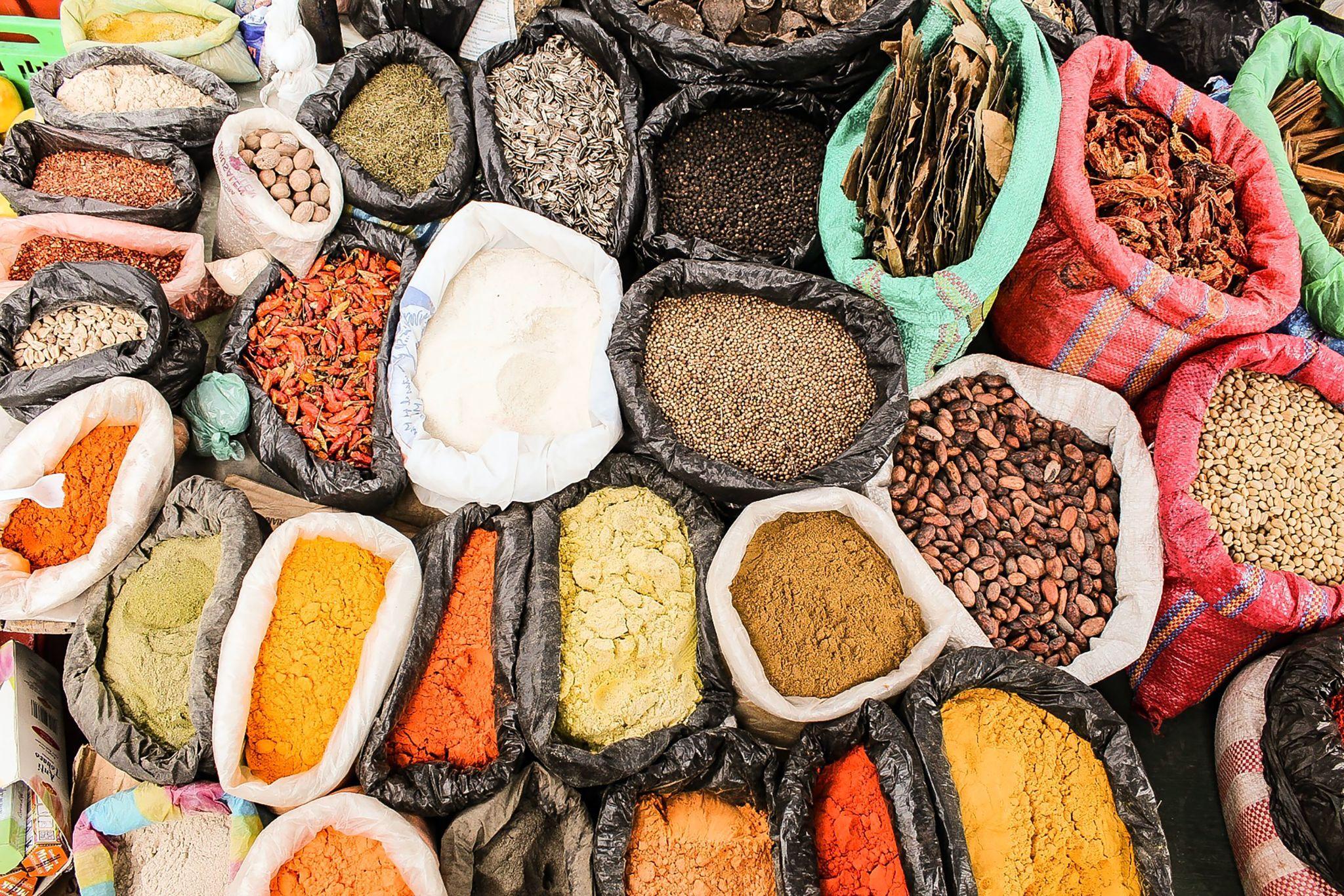
4 minute read
Herb vs Spices
By LaQuita Gaskins
Host of What You Wanna Talk About With LaQuita ?
Advertisement
www.envision-radio.com
Herbs and spices are an essential part of cooking, adding flavor and aroma to dishes. While the terms are often used interchangeably, they have distinct definitions and uses.
Herbs are the leaves, stems, or flowers of plants, often grown for culinary, medicinal, or aromatic purposes. Examples of herbs include basil, parsley, thyme, and rosemary. Herbs are often used fresh, although they can also be dried and used in cooking. They are typically added towards the end of the cooking process, as prolonged heating can cause them to lose their flavor.
Spices, on the other hand, are the seeds, roots, fruits, or bark of plants. Spices are often used in powdered form and can be used to add flavor, color, or aroma to dishes. Examples of spices include cinnamon, nutmeg, cumin, and ginger. Spices are often added at the beginning of the cooking process, as they need time to release their flavor.
While both herbs and spices can be used for culinary purposes, they are also valued for their medicinal and cultural significance. For example, many herbs are known for their medicinal properties and have been used for centuries to treat various ailments. Some examples include chamomile for relaxation, echinacea for immune support, and peppermint for digestion.
In biblical times, herbs and spices were highly valued and often used in religious ceremonies and as offerings to God. In fact, many of the herbs and spices mentioned in the Bible, such as frankincense, myrrh, and cinnamon, are still used today for their cultural and religious significance.
Herbs and spices are also an important part of many cultural cuisines, adding unique flavors and aromas to dishes. For example, Indian cuisine is known for its use of spices such as cumin, coriander, and turmeric, while Italian cuisine often incorporates herbs such as basil, oregano, and thyme.
In conclusion, herbs and spices are essential ingredients in cooking and have been used for centuries for their culinary, medicinal, and cultural significance. While herbs are the leaves, stems, or flowers of plants, spices are the seeds, roots, fruits, or bark. Both are used to add flavor and aroma to dishes and are valued for their cultural and religious significance. From biblical times to modern-day cuisine, herbs and spices continue to play an important role in our lives.
Throughout history, herbs have played a significant role in the health and well-being of humanity. In biblical times, herbs were used for both culinary and medicinal purposes. Many of the herbs mentioned in the Bible are still used today for their healing properties and are an essential part of today's health lifestyles.
One of the most well-known biblical herbs is aloe vera, which is mentioned in the Bible as a healing plant. Aloe vera has been used for centuries to treat a variety of skin conditions, including burns, cuts, and rashes. Today, aloe vera is still used for its healing properties and is found in many skincare products.
Another biblical herb that has health benefits is garlic. Garlic was used in biblical times as a seasoning and for its medicinal properties. Garlic contains compounds that can help reduce cholesterol levels, lower blood pressure, and boost the immune system. Today, garlic is a popular ingredient in many dishes and is also available in supplement form.
Cinnamon is another biblical herb that has health benefits. Cinnamon was used in biblical times as a flavoring and for its medicinal properties. Cinnamon contains antioxidants that can help reduce inflammation and lower blood sugar levels. Today, cinnamon is a popular spice used in many dishes, as well as in tea and other beverages.
Mint is another biblical herb that has health benefits. Mint was used in biblical times for its medicinal properties and as a flavoring. Mint contains compounds that can help soothe digestive issues, such as bloating and gas. Today, mint is commonly used in teas and other beverages, as well as in many dishes.
In addition to these herbs, there are many other biblical herbs that have health benefits, such as ginger, turmeric, and rosemary. These herbs have been used for centuries for their healing properties and are still valued today for their health benefits.
In today's health lifestyles, many people are turning to natural remedies and herbs to promote health and well-being. Herbs are a natural and effective way to support the body's natural healing processes and can be used in a variety of ways, including as supplements, in teas, or in cooking.
In conclusion, biblical herbs have played a significant role in human health for centuries and are still valued today for their healing properties. Many of these herbs are an essential part of today's health lifestyles and are used in a variety of ways to support health and well-being. From aloe vera to cinnamon, these herbs offer a natural and effective way to promote health and vitality.
He use of herbs in cooking and medicine has been practiced for centuries, and there is ample evidence to suggest that they are indeed worth using. Here are some frequently asked questions about the use of herbs and their benefits:
Are herbs effective in treating illnesses?
Yes, many herbs have been shown to have medicinal properties that can help treat a variety of illnesses. For example, echinacea is often used to boost the immune system and prevent colds, while ginger can help alleviate nausea and inflammation.
Are herbs safe to use?
While herbs are generally considered safe, it is important to use them correctly and in moderation. Some herbs can have side effects or interact with medications, so it is important to consult with a healthcare professional before using herbs for medicinal purposes.
Are herbs worth using in cooking?
Yes, herbs can add flavor and aroma to dishes without adding extra calories or sodium. In addition, many herbs have health benefits, such as antioxidant and anti-inflammatory properties, that can help support overall health and well-being.
Can herbs be used in place of medication?
While some herbs may have medicinal properties, they should not be used as a substitute for prescribed medication without consulting with a healthcare professional. Herbs may be used in conjunction with medication to enhance their effectiveness or to manage side effects.
Are herbs expensive to buy?
Herbs can be relatively inexpensive to buy, especially if you grow them yourself. Many herbs can be grown in small pots or in a backyard garden, making them a cost-effective option for adding flavor and health benefits to your cooking. In conclusion, herbs are worth using in cooking and medicine due to their flavorful properties and health benefits. While it is important to use them safely and in moderation, incorporating herbs into your daily routine can help support overall health and well-being.
Tune in weekly to What You Want To Talk About With LaQuita ? Listen on Saturdays at 11:00am EST on www.envision-radio.com















